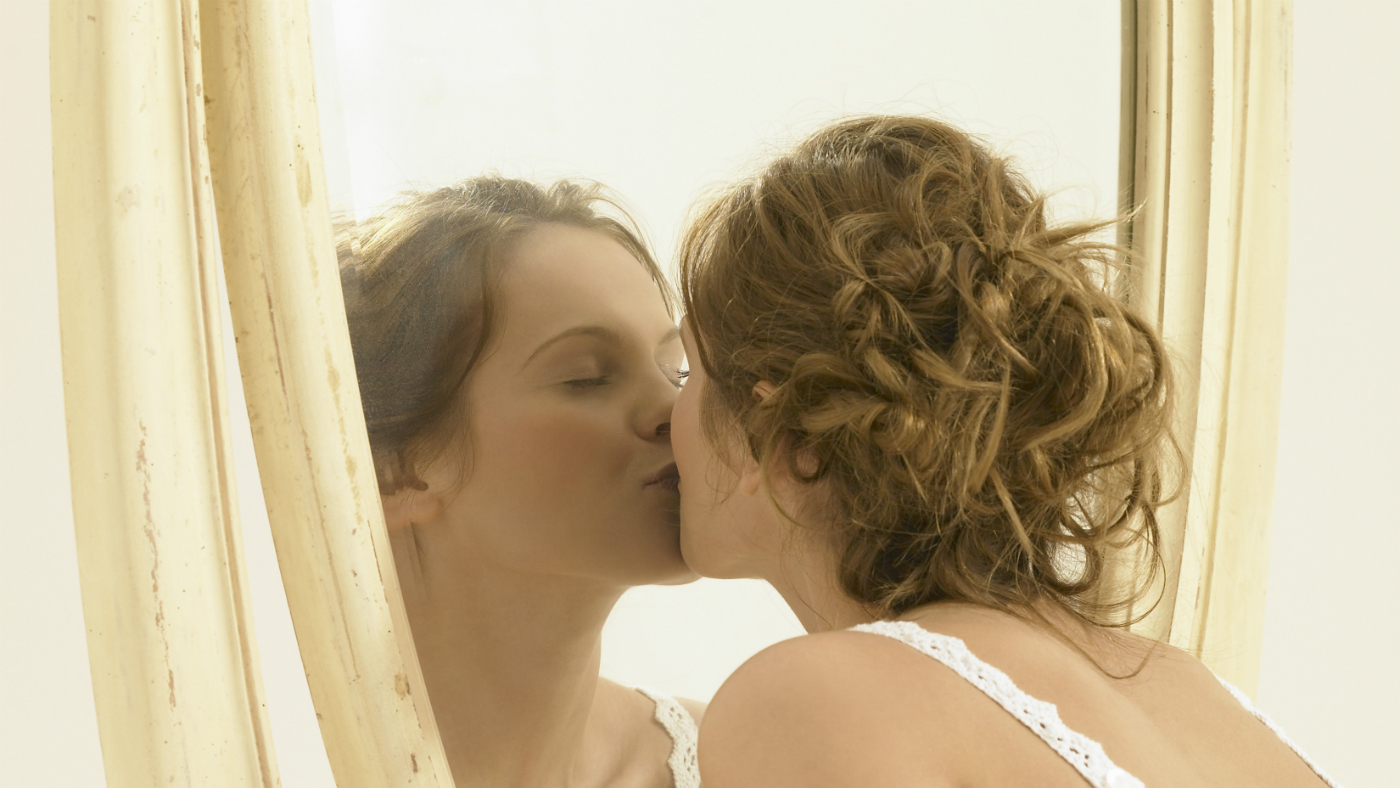What is autosexuality?
A growing number of people are pledging undying love to themself

A free daily email with the biggest news stories of the day – and the best features from TheWeek.com
You are now subscribed
Your newsletter sign-up was successful
A newspaper interview by a woman who is planning to marry herself has triggered fresh debate about this growing phenomenon of self-love.
Talking to the Metro, self-described autosexual Ghia Vitale, a writer from New York, said: “I’ve been attracted to myself for as long as I’ve been cognisant of attraction.”
The newspaper notes that this sexual identification has been “seldom talked about” - so what does it mean?
The Week
Escape your echo chamber. Get the facts behind the news, plus analysis from multiple perspectives.

Sign up for The Week's Free Newsletters
From our morning news briefing to a weekly Good News Newsletter, get the best of The Week delivered directly to your inbox.
From our morning news briefing to a weekly Good News Newsletter, get the best of The Week delivered directly to your inbox.
What is the definition of autosexuality?
In 2013, Psychology Today blogger Leon Seltzer described autosexuality, or autoeroticism, as “one of the ‘fuzziest’ concepts in the entire field of human sexuality”, with “little consensus on what it actually means”.
The Medical Dictionary defines autosexual as “characterised by sexual physical self-contact (e.g., masturbation, erotic fantasies or rituals)”.
According to Seltzer, autosexuals “are attracted primarily - sometimes exclusively - to their own bodies”, and autoeroticism “involves a whole range of sexual behaviours and attitudes”.
A free daily email with the biggest news stories of the day – and the best features from TheWeek.com
“Many individuals fitting this designation might self-stimulate only when other alternatives aren’t feasible,” he adds. “Some might find themselves turned on both by themselves and others. Others might be aroused (or arousable) solely by themselves - whether through sight or touch.”
It may involve “being autoromantic – experiencing the relationship with yourself as romantic”, says Metro.
“It can mean being turned on by your own look and nudity, getting butterflies when you think about yourself, being excited to spend time alone, and masturbating to the idea of yourself. It’s all the feelings we get for a potential new suitor but for ourselves,” the newspaper continues.
Is it a new concept?
No. In his book Freud and Autosexuality, sychoanalysis researcher and professor Michel Herve Bertaux-Navoiseau writes that although “the Greeks didn’t have a word to designate autosexuality”, philosophers of the time “did not make any difference between making love with one’s clitoris or foreskin or with two sexes”.
Psychology Today’s Seltzer also cites the Greeks. “As the original Narcissus of Greek mythology became enamoured of his own image (as reflected in a pool of water), so can pronounced autoerotics be physically attracted to - or titillated by - themselves,” he says.
What else do psychologists say?
Seltzer argues that autosexuality “isn’t a one-dimensional phenomenon”, adding: “Moreover, it cannot be overemphasised that very few individuals do not - to whatever degree - exhibit certain autoerotic elements in their sexuality.”
Dr Michael Aaron, author of Modern Sexuality, tells lifestyle site Refinery29: “It is very common for people to be aroused by themselves [to varying degrees]. Some experience it more like an orientation, in that they feel more aroused by themselves than by others.
“In fact, if you bring a mirror into your sex life, you can transition those feelings of arousal into an experience that you can enjoy with partners. And if you’re really into having sex in front of mirrors, there’s actually a name for that fetish - katoptronophilia.”
Self-outed autosexual Vitale claims that sex researcher Bernard Apfelbaum was the first to coin the term. In an article on blogging platform Medium, Vitale argues that the true number of autosexuals is underestimated and understudied.
She asks: “Is it because it’s still so stigmatised nobody ‘believes’ it’s real and thus, never sincerely studies it? Or is it because autosexuality is actually quite rare and there aren’t enough folks who manifest behaviour in the same way to properly qualify it?”
-
 Political cartoons for February 12
Political cartoons for February 12Cartoons Thursday's political cartoons include a Pam Bondi performance, Ghislaine Maxwell on tour, and ICE detention facilities
-
 Arcadia: Tom Stoppard’s ‘masterpiece’ makes a ‘triumphant’ return
Arcadia: Tom Stoppard’s ‘masterpiece’ makes a ‘triumphant’ returnThe Week Recommends Carrie Cracknell’s revival at the Old Vic ‘grips like a thriller’
-
 My Father’s Shadow: a ‘magically nimble’ film
My Father’s Shadow: a ‘magically nimble’ filmThe Week Recommends Akinola Davies Jr’s touching and ‘tender’ tale of two brothers in 1990s Nigeria